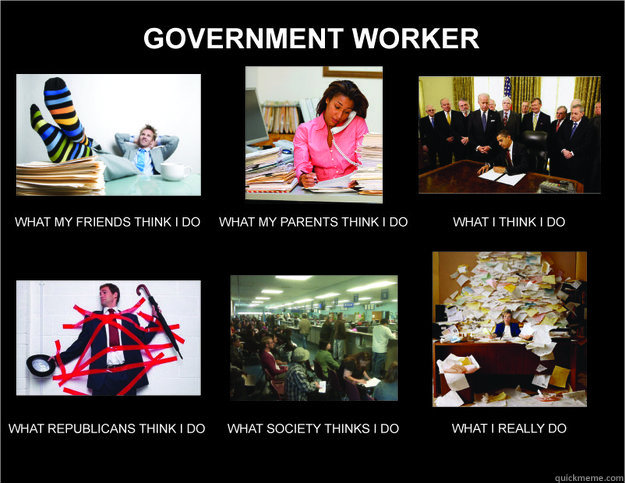Federal Worker Job Transition: State And Local Employment Opportunities And Obstacles

Table of Contents
Opportunities for Federal Workers in State and Local Government
Federal employees possess a wealth of highly transferable skills and experience making them attractive candidates for state and local government positions.
Transferable Skills and Experience
Federal workers often develop expertise in areas highly valued across all levels of government. These include: project management, policy analysis, budget management, grant writing, regulatory compliance, and public administration. This experience translates seamlessly to similar roles within state and local agencies.
- Federal Program Manager → State Agency Program Manager: The core skills of managing budgets, timelines, and teams remain constant.
- Federal Budget Analyst → State/Local Budget Analyst: Experience with federal budgeting processes is directly applicable to state and local budget cycles.
- Federal Grant Writer → State/Local Grant Writer: The ability to write compelling proposals and manage grant funds is universally sought after.
- Federal Human Resources Specialist → State/Local HR Specialist: Expertise in recruitment, employee relations, and benefits administration is highly transferable.
The Office of Personnel Management (OPM) also offers career transition services, including workshops and resources, to help federal employees navigate this process.
Similar Job Structures and Responsibilities
Many state and local government agencies have comparable job functions and organizational structures to their federal counterparts. For example, a federal employee working in the Department of Transportation might easily transition to a similar role within a state's Department of Transportation. Similarly, environmental protection agencies at the state and local levels often seek individuals with experience gained at the federal Environmental Protection Agency (EPA).
The familiarity with government processes, regulations, and bureaucratic procedures gained through federal employment is a significant advantage in navigating state and local government environments. This existing knowledge base allows for a quicker ramp-up time and improved job performance.
Networking Opportunities
Networking plays a crucial role in a successful Federal Worker Job Transition. Leverage your existing professional network and actively expand it.
- Attend conferences and job fairs focused on state and local government employment.
- Utilize LinkedIn and other professional platforms to connect with recruiters and hiring managers in your field.
- Conduct informational interviews to gain insights into specific agencies and roles.
Obstacles in the Federal Worker Job Transition to State and Local Employment
While numerous opportunities exist, transitioning from federal to state and local government employment presents certain obstacles that need careful consideration.
Salary and Benefits Discrepancies
One significant challenge can be differences in salary and benefits packages. State and local government compensation may vary considerably compared to federal roles. Thorough research into salary ranges for comparable positions at the state and local level is essential. Additionally, differences in pension and retirement plans should be carefully evaluated.
Geographic Limitations and Relocation
Relocating for a new position can present challenges, especially if the federal job was located in a different region. Carefully consider the geographical limitations and strategize accordingly. Look for remote work opportunities or target your job search within a specific radius.
Competitive Application Process
State and local government jobs often attract a large number of applicants, creating a competitive environment. To stand out:
- Craft a compelling resume and cover letter tailored to each specific state/local government job.
- Prepare thoroughly for interviews, highlighting your transferable skills and experience.
- Demonstrate a comprehensive understanding of the agency and role you're applying for.
Differences in Hiring Processes
Hiring processes may differ between federal and state/local government agencies. Familiarize yourself with the specific requirements and expectations of the state and local agencies you are targeting.
Conclusion
A Federal Worker Job Transition to state and local government presents both significant opportunities and some challenges. Leveraging your valuable transferable skills, actively networking, and strategically navigating the potential salary and benefits differences are key factors for a smooth transition. By understanding and addressing these obstacles proactively, federal employees can successfully transition to rewarding and fulfilling careers in state and local government. Start exploring opportunities today by researching specific state and local government job boards and utilizing the resources mentioned above to ensure a successful Federal Worker Job Transition.

Featured Posts
-
 Mets Pitcher Earns Praise Another Stellar Performance
Apr 28, 2025
Mets Pitcher Earns Praise Another Stellar Performance
Apr 28, 2025 -
 Cocaine Found At White House Secret Service Wraps Up Investigation
Apr 28, 2025
Cocaine Found At White House Secret Service Wraps Up Investigation
Apr 28, 2025 -
 Times Trump Interview 9 Key Takeaways On Annexing Canada Xis Calls And Third Term Loopholes
Apr 28, 2025
Times Trump Interview 9 Key Takeaways On Annexing Canada Xis Calls And Third Term Loopholes
Apr 28, 2025 -
 Red Sox Roster Update Lineup Restructure Outfielder Returns Casas Position Shift
Apr 28, 2025
Red Sox Roster Update Lineup Restructure Outfielder Returns Casas Position Shift
Apr 28, 2025 -
 Espn Forecasts Red Soxs 2025 Season
Apr 28, 2025
Espn Forecasts Red Soxs 2025 Season
Apr 28, 2025
